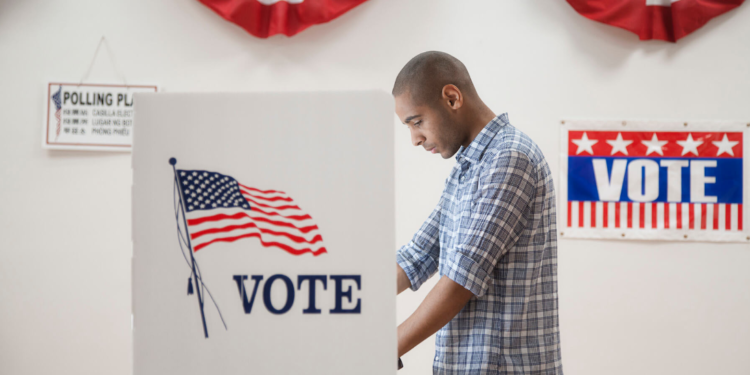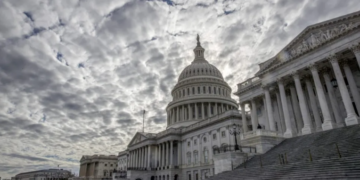Sep 21, 2024 Story by: Editor
Three nonprofit organizations recently published a study examining various value clusters within the Black community across three key swing states, aiming for a more in-depth analysis beyond traditional demographic categories.
The research, conducted in Michigan, Georgia, and Pennsylvania, was not aligned with any particular candidate.
This national four-year study on the Black electorate reveals that while nearly half (41%) of Black individuals believe in their collective ability to drive change, 22% are highly cynical about politics and elections. Additionally, 18% are vulnerable to this growing disillusionment, often feeling neglected by the political industry.
POWER Interfaith of Pennsylvania, New Georgia Project, and Detroit Action Education Fund led the study.
“The political industry has often looked at the historical trend of the overwhelming majority of Black voters supporting Democrats and assumed that the Black electorate is a monolith or voting bloc that can be taken for granted,” states the executive summary.
“However, after more than four years of rigorous research across multiple states focused on the intersections, nuances, issue priorities, and values within the Black community, we know that the Black electorate is complex. Any organization or campaign interested in engaging Black voters should treat them with the same level of curiosity as any other constituency. Black people are political agents making choices about how they engage, whether or not they engage, and what role they see the government playing in their lives based on their lived experiences, values, and identities.”
Katrina Gamble, founder and CEO of Sojourn Strategies, and Terrance Woodbury, CEO and founding partner of HIT Strategies, collaborated with these state-based groups to conduct both national and state-specific research in Pennsylvania, Georgia, and Michigan. Michigan’s Black population stands at 14%, Pennsylvania’s at 13%, and Georgia’s at almost 31%.
“Campaigns and organizations are making historic investments to engage Black voters but they’re missing a critical piece of the puzzle, and a Black values survey is the key,” said Gamble. “Too many segments of the Black electorate feel isolated and ignored by the political industry because no one has taken the time to understand the roots of their cynicism and mistrust of politics. This research reveals the nuances, motivations, and unique messages that different communities of Black voters need to hear so community organizers can build more effective programs and narratives that inspire people to vote.”
The 2024 Black Values Survey, which encompasses both registered and unregistered Black voters, builds on initial 2022 research, which focused solely on registered voters. The survey explored respondents’ values and worldviews, including social trust, perceptions of power, solidarity with the Black community, and religiosity, identifying five distinct Black Values clusters within the national electorate.
The Detroit Action Education Fund (DAEF) uses a mix of door-to-door canvassing, digital outreach, and micro-influencer campaigns to engage voters.
In 2020, DAEF helped introduce 86,000 new voters in Wayne County to the political process.
“You can’t talk young Black people out of their rightful cynicism,” said Branden Snyder, senior advisor with DAEF. “What you have to do is acknowledge, listen, and empathize with folks’ lived experience. Rightful cynics are looking for a place where they see other cynics like them taking action in their community. Here in Detroit, we are proving that rightful cynicism is not necessarily a barrier to civic engagement. You can be cynical and still vote if it means delivering real change for your community.”
The study highlights key voter segments: Legacy Civil Rights (41%) consists mainly of older individuals over 50 years old; Secular Progressives (12%) is a politically active, majority-female group; and NextGen Traditionalists (18%) is predominantly made up of Millennials and Gen Z.
These findings are based on surveys of 2,034 registered Black voters and 918 unregistered voters. YouGov conducted the weighting and matched respondents based on gender, age, and education. The survey took place in March 2024, with a margin of error of +/- 1.84%. Source: Maine Morning Star








![U.S. Congressman Byron Donalds chuckles while former President and Republican presidential candidate Donald Trump gives a keynote address at the Black Conservative Federation gala dinner on February 23, 2024. [Alyssa Pointer/Reuters]](https://blkpoliticsnow.com/wp-content/uploads/2024/10/DSADSA-75x75.png)








